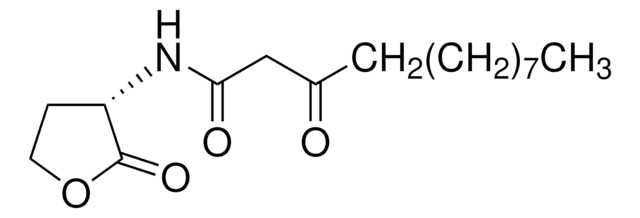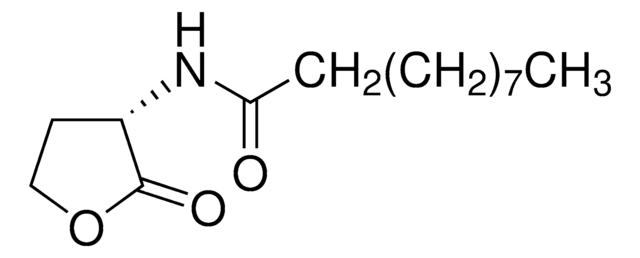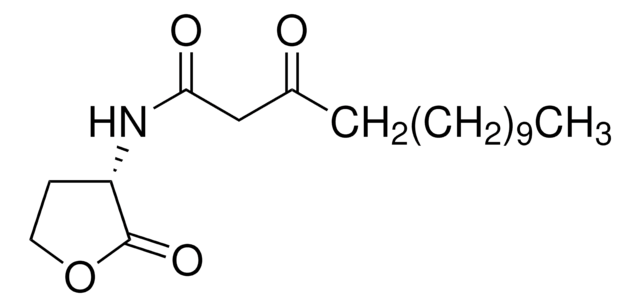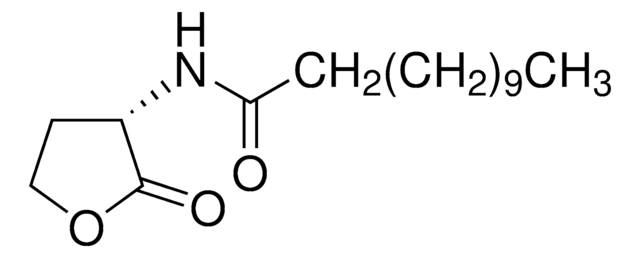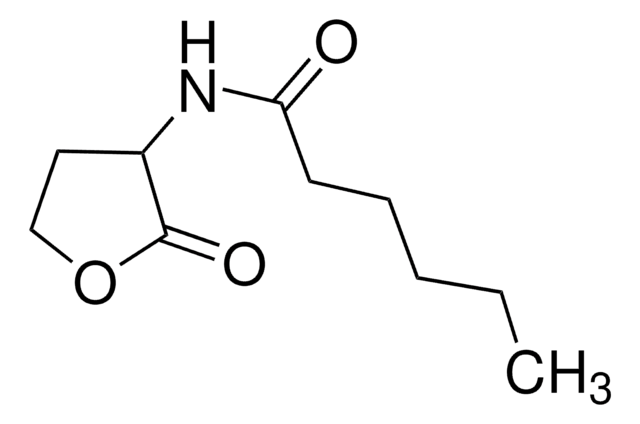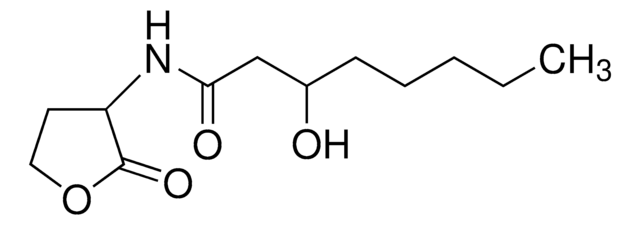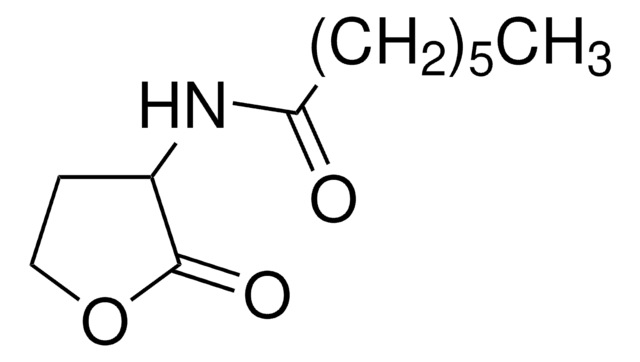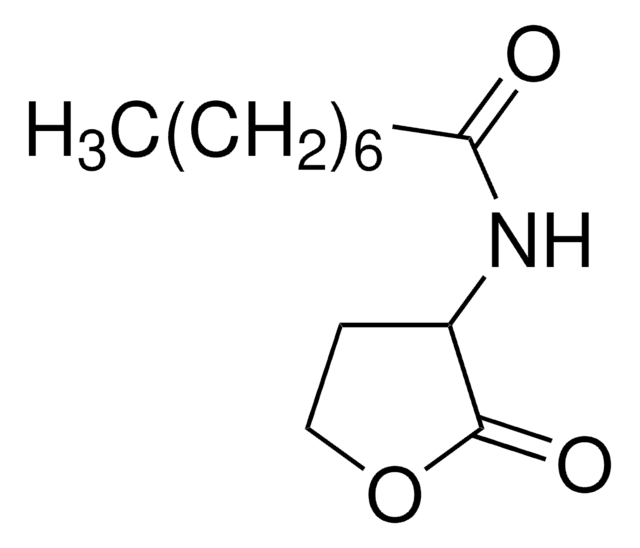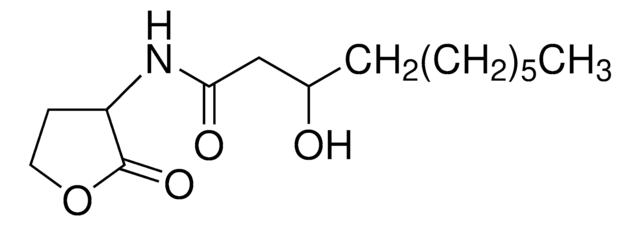O1764
N-(3-Oxooctanoyl)-L-homoserine lactone
≥97% (HPLC), white, powder
Synonym(s):
3-oxo-C8-HSL, 3OC8-HSL, N-(β-Ketooctanoyl)-L-homoserine
About This Item
Recommended Products
assay
≥97% (HPLC)
form
powder
mol wt
241.28
technique(s)
protein expression: suitable
color
white
solubility
chloroform: 50 mg/mL, clear, colorless
shipped in
wet ice
storage temp.
−20°C
SMILES string
CCCCCC(=O)CC(=O)N[C@H]1CCOC1=O
InChI
1S/C12H19NO4/c1-2-3-4-5-9(14)8-11(15)13-10-6-7-17-12(10)16/h10H,2-8H2,1H3,(H,13,15)/t10-/m0/s1
InChI key
FXCMGCFNLNFLSH-JTQLQIEISA-N
General description
It is a signaling molecule that is produced by Gram negative bacteria.
Application
- to study the effects of pH, temperature, and salinity on extracellular polymeric substances (EPS) of Pseudomonas aeruginosa biofilm.
- as an AHL inducer to activate the quorum sensing pathways in Synechococcus elongatus.
Biochem/physiol Actions
also commonly purchased with this product
Storage Class
11 - Combustible Solids
wgk_germany
WGK 3
flash_point_f
Not applicable
flash_point_c
Not applicable
ppe
Eyeshields, Gloves, type N95 (US)
Certificates of Analysis (COA)
Search for Certificates of Analysis (COA) by entering the products Lot/Batch Number. Lot and Batch Numbers can be found on a product’s label following the words ‘Lot’ or ‘Batch’.
Already Own This Product?
Find documentation for the products that you have recently purchased in the Document Library.
Customers Also Viewed
Our team of scientists has experience in all areas of research including Life Science, Material Science, Chemical Synthesis, Chromatography, Analytical and many others.
Contact Technical Service